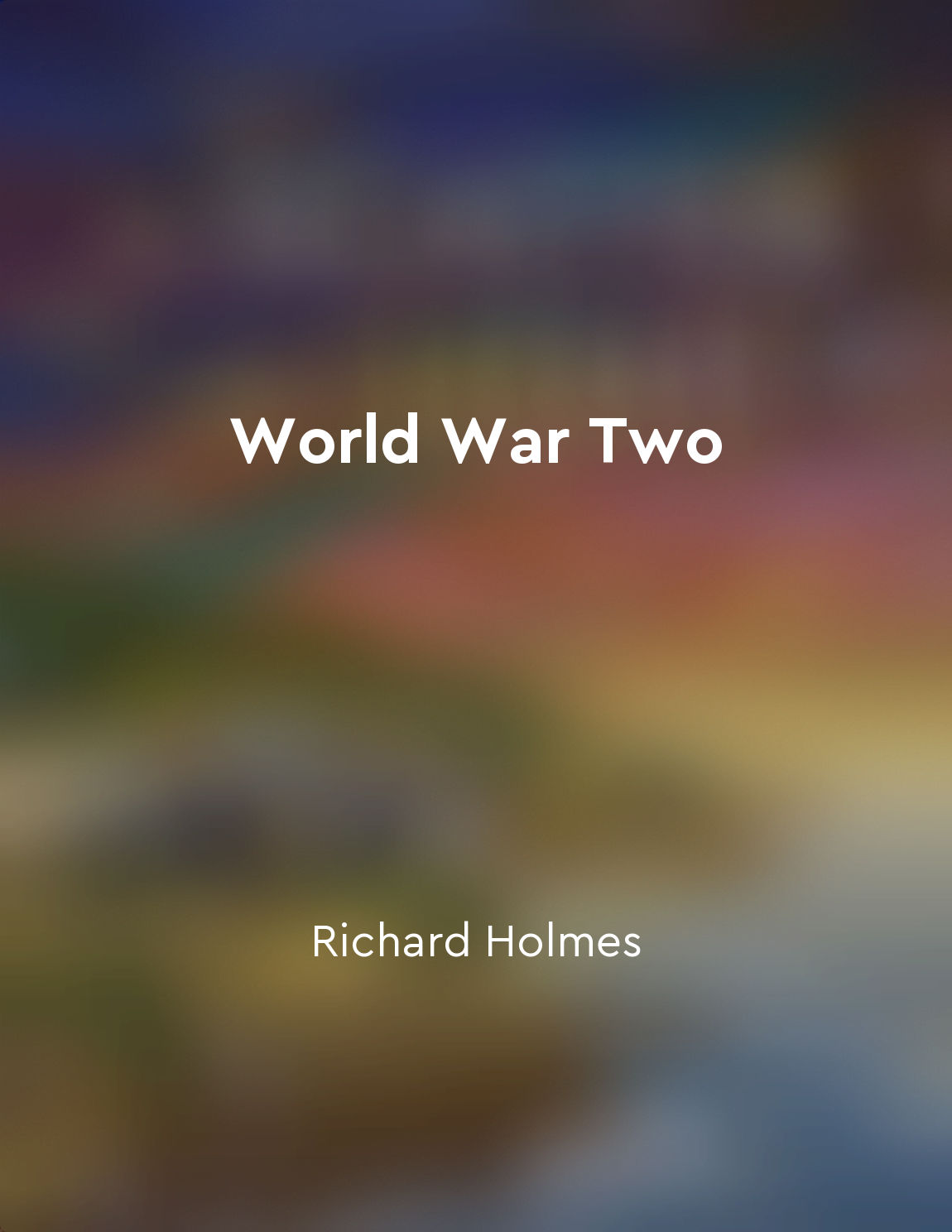The Western Front became a stalemate of trench warfare from "summary" of The Guns of August by Barbara W. Tuchman
By the end of 1914, the war on the Western Front had settled into a grueling stalemate. Soldiers had dug themselves in, creating a vast network of trenches that stretched from the English Channel to the Swiss border. These trenches were not just defensive positions; they were homes to the troops who lived and fought within them. The trenches were a grim and dangerous place to be. They were constantly under threat from enemy snipers and artillery fire. Soldiers lived in constant fear of being killed or wounded by a stray bullet or shell. The conditions in the trenches were appalling. They were wet, cold, and infested with vermin. Disease was rampant, and many soldiers died not from enemy action, but from illness. The stalemate on the Western Front was a result of the power of modern weapons colliding with the tactics of the past. The machine gun, artillery, and barbed wire made it impossible for troops to advance across open ground. Any attempt to do so would be met with a hail of bullets and shells. As a result, both sides were forced to dig in and defend their positions. The generals on both sides struggled to find a way to break the stalemate. They launched massive offensives, hoping to achieve a breakthrough, but they were always repulsed with heavy losses. The Battle of the Somme in 1916 was a particularly bloody example of this. Thousands of men were killed or wounded in a futile attempt to gain a few miles of ground. The stalemate on the Western Front would continue for four long years, until the war finally came to an end in 1918. It was a period of unimaginable suffering and sacrifice, as soldiers endured the horrors of trench warfare day in and day out. The Western Front became a symbol of the futility and waste of war, a reminder of the terrible cost of conflict.Similar Posts
Hope keeps them going
The men's spirits were low as they trudged through the harsh terrain, their bodies weary and their minds filled with doubt. Yet...
Stephen's longing for Isabelle is profound
Stephen's longing for Isabelle runs as deep as the trenches he once occupied on the battlefields of France. It is a longing tha...
Hessians suffered a significant loss
The Hessians suffered a devastating blow at the Battle of Trenton. Their defeat was not just a military setback, but a psycholo...
The war revealed the limitations of leadership
The First World War was a cataclysm that exposed the shortcomings of leadership in a way that had never been seen before. As na...
Legacy of hope
The legacy of hope is a powerful force that can shape the course of history, inspiring individuals to rise above the darkness a...
Stephen's story is a testament to the human spirit
Stephen's story in 'Birdsong' by Sebastian Faulks stands as a powerful example of the resilience and strength of the human spir...

Intelligence operations intensified
As World War Two progressed, the importance of intelligence operations became increasingly evident to military leaders on all s...
